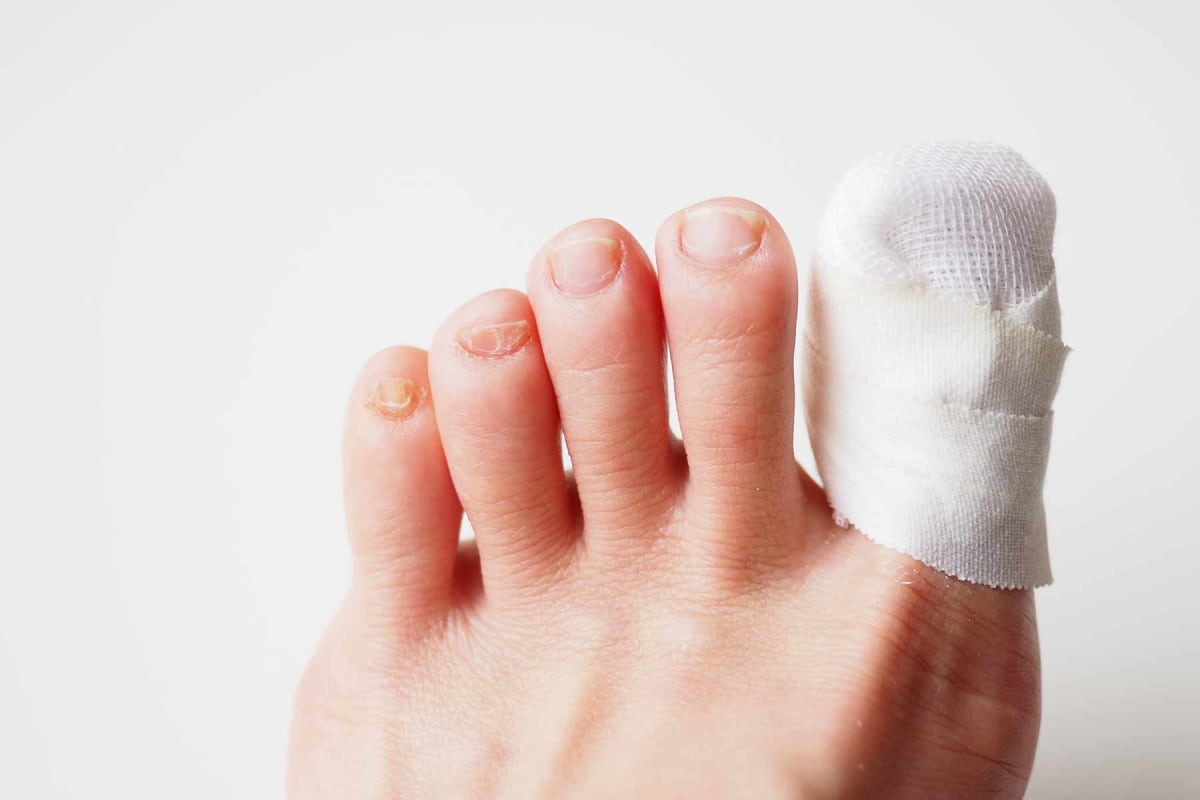
How much does ingrown toenail removal cost?
How much does ingrown toenail removal cost?
$200 – $500 average cost (without insurance)
Ingrown toenail removal cost
Ingrown toenail removal costs $200 to $500 on average without insurance, depending on the severity of the condition, the healthcare facility and provider, and consultation fees. Ingrown toenail surgery is a common podiatric procedure that can provide immediate relief from pain and prevent complications.

| National Average Cost | $350 |
| Minimum Cost | $150 |
| Maximum Cost | $850 |
| Average Range | $200 to $500 |
What affects the cost to remove an ingrown toenail?
Several factors influence the final cost of ingrown toenail removal:
Severity of the condition: Simple partial toenail removals are less expensive than severe infections or chronic cases requiring permanent nail matrix removal. More severe cases often require more extensive treatment, increasing the overall cost.
Healthcare facility: Costs vary depending on whether the procedure is performed at a doctor's office, urgent care center, or hospital.
Insurance coverage: If you have health insurance, your out-of-pocket costs may be lower, depending on your plan's coverage and deductibles.
Local anesthesia: Most healthcare providers include local anesthesia in their fee for ingrown toenail removal, but some charge separately for it. Be sure to confirm whether your provider’s fee includes anesthesia.
Additional costs: Other expenses may include an initial consultation fee, follow-up visit fee, antibiotics, and post-treatment supplies like bandages and Epsom salts.
What causes ingrown toenails?
Ingrown toenails occur when the edge of the nail grows into the skin, causing pain, redness, and swelling. Common causes include:
Improper nail trimming (cutting nails too short or rounding the edges)
Wearing tight or ill-fitting shoes
Toe injuries
Genetic predisposition
Fungal nail infections
Ingrown toenail removal FAQs
Is ingrown toenail removal painful?
The procedure to remove an ingrown toenail is usually not painful, as the doctor will numb the area first with local anesthesia. Patients may experience mild discomfort for 24 to 48 hours after the anesthesia wears off. Your doctor may recommend over-the-counter pain relievers to manage any pain.
How long should you keep the bandage on after ingrown toenail removal?
Your doctor will provide specific instructions on how long to keep the bandage on after the procedure. Generally, you should keep the first bandage on for at least 24 to 48 hours after the procedure and then change it daily until the wound heals, which typically takes 1 to 2 weeks.
Does insurance cover ingrown toenail removal?
Most insurance plans cover ingrown toenail removal if your doctor deems it medically necessary. However, coverage and deductibles vary depending on the specific plan. Check with your insurance provider for details on your coverage.
Where to get ingrown toenail removal
If you're experiencing pain and discomfort from an ingrown toenail, it's essential to seek medical attention from a qualified healthcare professional. Several options are available:
Primary care physician
Podiatrist
Urgent care center
Dermatologist
Can urgent care remove an ingrown toenail?
Yes, many urgent care centers offer ingrown toenail removal services. This can be a convenient option if you cannot get a timely appointment with your primary care physician or a podiatrist.
Do nail salons remove ingrown toenails?
No, nail salons should not remove ingrown toenails. Ingrown toenail removal is a medical procedure that should only be performed by a qualified healthcare professional in a sterile environment to minimize the risk of infection.

Questions to ask a doctor about ingrown toenail removal
Ask your healthcare provider these important questions before proceeding with the treatment:
What type of ingrown toenail removal procedure do you recommend?
What is your experience with this procedure?
What are the total costs, including local anesthesia and follow-up care?
Will my insurance cover this procedure?
What is the recovery time?
How can I prevent future ingrown toenails?
What aftercare will this require?
What are the signs of complications to watch for?